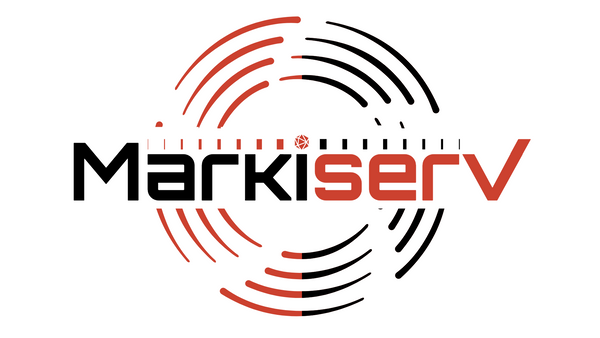
Subscription vs. Contract Models for Agencies: A Comprehensive Guide to Choosing the Right Business Model
Share
When engaging with an agency—whether it's for graphic design, marketing, or any other professional service—businesses are often faced with an important decision: should they opt for a subscription-based model or a contract-based model? This decision can have significant long-term effects on the way the business works with its agency, manages its budget, and drives growth.
Both subscription and contract models offer unique advantages, but the key to making the right choice lies in understanding each model's benefits, challenges, and how they align with your specific business needs. This comprehensive guide will explore both models, providing you with a deeper understanding of their characteristics, pros and cons, and helping you decide which is best suited for your business.
Background on Subscription-Based Models
A subscription-based model is a recurring payment system in which businesses pay a fixed fee at regular intervals (typically monthly, quarterly, or annually) in exchange for a set number of services or access to a suite of ongoing resources. Subscription models are particularly common in industries where businesses need continuous support or a predictable service offering, such as SaaS (Software as a Service), digital marketing, and graphic design.
Under the subscription model, businesses are often provided with a bundle of services or resources each month, which may include a set number of hours of work, ongoing deliverables, or regular updates. For agencies, this model offers steady, predictable revenue streams that enable long-term planning and resource allocation.
Examples of Subscription-Based Services:
- Marketing agencies offering continuous content creation, social media management, and SEO support.
- Graphic design agencies providing ongoing design updates, branding support, and digital content.
- SaaS platforms that supply businesses with ongoing access to software tools, technical support, and regular updates.
Background on Contract-Based Models
In a contract-based model, businesses hire agencies for a one-time project or for a set scope of work, usually with clear start and end dates. Contracts are often structured around specific deliverables, timelines, and payment terms. Once the project is completed, the contract expires, and the business may choose to engage the agency again for future work, but there’s no ongoing obligation.
Contract models are typically favored for projects that have distinct goals and defined timeframes, such as website redesigns, marketing campaigns, product launches, or brand overhauls. These models provide a clear and immediate scope of work and allow businesses to allocate resources on a project-by-project basis.
Examples of Contract-Based Services:
- Website redesign projects, where businesses hire agencies to complete a full overhaul of their site within a set period.
- Brand identity development projects, where agencies are hired to create logos, marketing materials, and visual branding.
- Seasonal campaigns or one-time marketing initiatives, which have a specific scope and target timeline.
Pros and Cons of Subscription-Based Models
Pros of Subscription-Based Models
- Predictable and Stable Revenue Subscription models provide agencies with a steady stream of income, which can help with cash flow and financial forecasting. For businesses, this means that they can budget more easily, knowing that their agency fees will remain consistent month to month.
- Ongoing Collaboration Subscriptions foster long-term relationships between businesses and agencies. Since the agency is engaged for ongoing services, the business and agency have a chance to develop deeper collaboration, trust, and alignment. Over time, agencies become more familiar with a business's unique needs, resulting in more effective strategies and campaigns.
- Scalable Services One of the key benefits of a subscription model is flexibility. As your business grows, you can usually scale your service plan to meet changing needs. For example, if your marketing efforts are more successful and you need additional services, you can upgrade your plan to include more resources.
- Long-Term Focus Subscription models are ideal for businesses that want to focus on long-term growth. Agencies can offer continuous support, refinement, and optimization over time, helping businesses adapt to changing market conditions and evolve their strategies as needed.
- Reduced Client Acquisition Costs For agencies, subscriptions reduce the constant need to acquire new clients. With recurring revenue from long-term contracts, agencies can focus more on delivering excellent service rather than spending a significant amount of time on new business development.
Cons of Subscription-Based Models
- Service Overload Subscription models may not be ideal for businesses that have fluctuating needs. For instance, if your business only requires services occasionally, paying for a monthly plan with a set of ongoing services could lead to underutilization of the plan. This can feel like you're paying for more than what you need.
- Potential Complacency Since agencies are guaranteed monthly payments, there is the potential for complacency in service delivery. Without a defined endpoint, the urgency that often accompanies contract work may not be present, leading to a lack of innovation or strategic focus over time.
- Churn Risk One of the major risks of subscription-based models is client churn. If a business isn’t satisfied with the ongoing service, it can cancel its subscription, leaving the agency with a loss of revenue. High churn rates can affect the agency's overall financial stability and growth.
- Limited Flexibility Some businesses may feel locked into a subscription, especially if they need to pause or reduce services temporarily. While some agencies allow flexible terms, others may require a commitment, which can create pressure for businesses with fluctuating service needs.
Pros and Cons of Contract-Based Models
Pros of Contract-Based Models
- Clear, Defined Deliverables Contract-based models are perfect for businesses that have specific project goals with clear timelines. With a contract, both the business and agency know exactly what the expectations are, what will be delivered, and when. This reduces ambiguity and ensures that work is focused on achieving specific outcomes.
- No Long-Term Commitment One of the key advantages of the contract model is that businesses don’t need to commit to an ongoing relationship. Once the project is complete, businesses can reassess whether they want to continue working with the agency, giving them more flexibility to explore new partners.
- Customization Contract models offer high levels of customization. The business can negotiate terms based on their unique needs and the agency can create tailored solutions that address specific pain points, making the project more effective and efficient.
- Fixed Costs With contracts, businesses know exactly how much they will pay and what services they will receive. The fixed cost structure makes budgeting easier, and there are no surprises when it comes to fees.
- Performance-Based Incentives Some contract-based agreements offer performance-based bonuses, rewarding agencies for meeting or exceeding project goals. This creates an environment of accountability, motivating the agency to deliver high-quality work that drives results.
Cons of Contract-Based Models
- Higher Upfront Costs While the cost may be fixed, contract-based models often require a significant upfront payment, which could be a financial strain for businesses, especially smaller ones. This can make it more difficult for businesses with tight budgets to engage agencies for high-quality projects.
- Lack of Ongoing Collaboration Once the project is completed, the collaboration ends. If the business needs ongoing work, like updates, tweaks, or additional campaigns, they would have to enter into a new contract, which may not be ideal for companies looking for continuous support.
- Time Constraints Projects have set deadlines, and agencies may rush to meet them. This time pressure can sometimes result in less-than-optimal work if the project scope is complex or requires in-depth analysis and strategy. Agencies may not have the same flexibility as they would in a subscription model.
- Inconsistent Revenue for Agencies For agencies, the contract model can lead to inconsistent cash flow. Once a contract is completed, the agency must secure new business, which can lead to lean periods. This makes it difficult for agencies to plan for long-term growth without a steady pipeline of clients.
In-Depth Analysis: When to Choose Subscription vs. Contract Models
When to Choose Subscription-Based Models
- Businesses with Ongoing Needs: If your business requires constant support—whether in design, marketing, or another service—subscription models offer a more seamless, consistent solution. Subscriptions are ideal for long-term growth strategies that require ongoing collaboration.
- Predictability and Stability: Subscription models are perfect for businesses that need to stick to a strict budget. With fixed monthly or annual fees, businesses know exactly how much to expect each month, which makes financial planning and forecasting easier.
- Business Scalability: If you anticipate growth or your business's needs will increase over time, a subscription-based service model allows you to scale up without renegotiating terms every time. As you add new services or products, the agency can evolve alongside your business.
When to Choose Contract-Based Models
- Project-Specific Needs: For businesses that only need one-time, project-based work (like launching a new product or redesigning a website), the contract model is ideal. It offers a one-off service with defined objectives and timelines.
- Flexibility and Customization: If you need a highly tailored approach, contract-based models offer flexibility in terms of pricing, timelines, and deliverables. Businesses that want a specific, customized project outcome often thrive in this setup.
- Limited Ongoing Needs: If your business doesn't need ongoing services and prefers to engage an agency on a per-project basis, the contract model offers the most flexibility. It allows you to manage expenses on a case-by-case basis and avoid unnecessary services.
Conclusion: Subscription vs. Contract Models—Which is Right for Your Business?
Choosing between a subscription-based or contract-based agency model is not a one-size-fits-all decision. Each model offers unique benefits and challenges that will suit different business needs, goals, and budgets.
Businesses should carefully evaluate their requirements, timelines, budget, and the type of relationship they wish to establish with their agency. For businesses needing consistent, long-term service and ongoing collaboration, the subscription model might be the right choice. On the other hand, for project-driven work with defined scopes and deadlines, the contract model could provide the flexibility and customization needed.
Understanding the core features of each model and how they align with your business needs is key to making an informed decision that will set you up for success in the long term.
Further Reading:
How to Choose Between Subscription or Project-Based Pricing for Your Agency
This article provides an in-depth comparison between subscription and project-based pricing models for agencies, helping you understand the key differences and which might be the best fit for your business.
The Pros and Cons of Subscription-Based Business Models
A deep dive into the benefits and challenges of subscription-based business models, exploring how they can help businesses achieve steady revenue and build long-term customer relationships.
The Ultimate Guide to Choosing the Right Business Model
This comprehensive guide walks you through various business models and provides insights on how to select the one that aligns with your goals, especially when deciding between subscription and contract models.
Understanding Contract-Based Pricing Models for Agencies
Explore how contract-based pricing models work, what they include, and how they might benefit agencies looking for more predictable income while working with clients over a longer term.
How Subscription Services Are Revolutionizing Marketing Agencies
This article discusses how subscription services are transforming the marketing agency industry, making it easier for agencies to predict revenue and build lasting client relationships.
